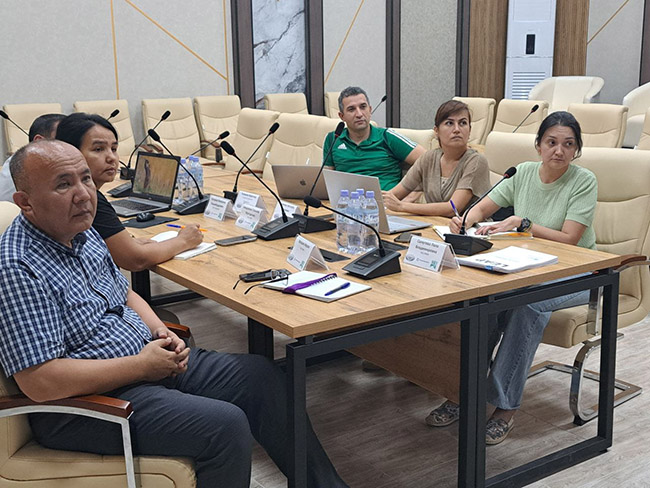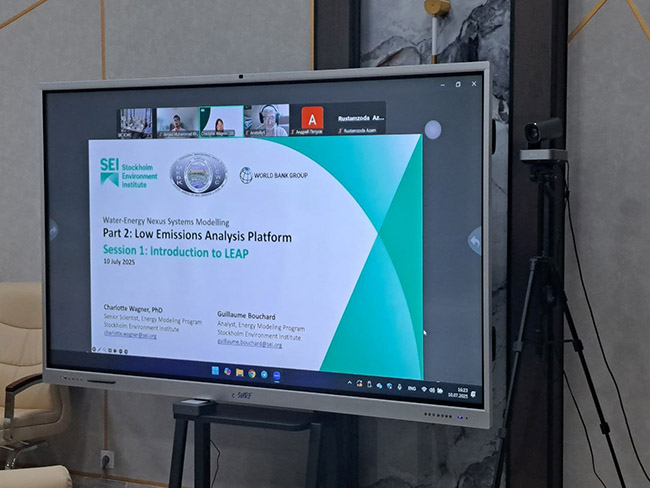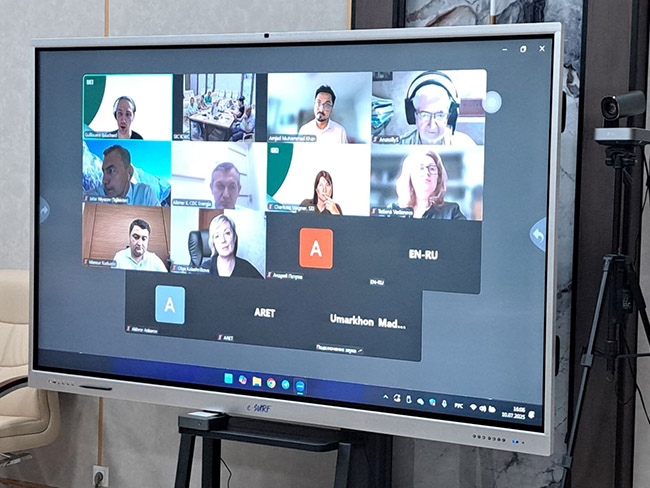No. 62 (586) July 2025
WORKSHOP ON THE "WATER-ENERGY NEXUS SYSTEMS MODELING" PROJECT
On 7 July 2025, the Training Center of SIC ICWC welcomed the participants of the one-day workshop organized in collaboration with the World Bank Group as part of the project "Water-Energy Nexus Systems Modeling".
The workshop is a part of the project’s second stage, which is focused on energy component. The key theme was the LEAP model and its application for analysis of energy scenarios in water-energy nexus.
The workshop brought together participants of Technical group 2, which includes national energy and water experts from Tajikistan, Kazakhstan, Kyrgyzstan and Uzbekistan.


The key workshop’s objectives include:
1. Modeling energy systems by LEAP
- Introductory lecture: how to start the application, basic navigation
- Handling the analysis results
- Building and modeling scenarios and emissions
- Forecasting energy demand
- Modeling energy supply
- How to launch, run and analyze existing LEAP models
2. Integrated water-energy system modeling (Central Asia)
- Exploring LEAP's capabilities for Central Asia
- Demonstrating WEAP-LEAP combined operation
- Reviewing current policies in the region
The LEAP model helps to assess the energy system sustainability and compare different scenarios while considering emissions and resource constraints. It is helpful for searching the soundest policy and investment strategies, reducing uncertainty and providing a cross-sectoral approach to the energy-water nexus.
In the second part of the workshop, the participants gained practical experience in building data structure. This laid the groundwork for future independent work with the LEAP model and its usage in analyzing water-energy nexus.

The workshop was a crucial step in the second stage of the project, which aims to develop expert skills in modeling the energy system and its integration with the water sector. The workshop not only provided a foundation for future work but also served as a platform for dialogue and fostering a common language between representatives of the water and energy sectors. The knowledge and skills gained will form a solid foundation for subsequent project stages and for the development of an integrated approach to resource management in Central Asia.